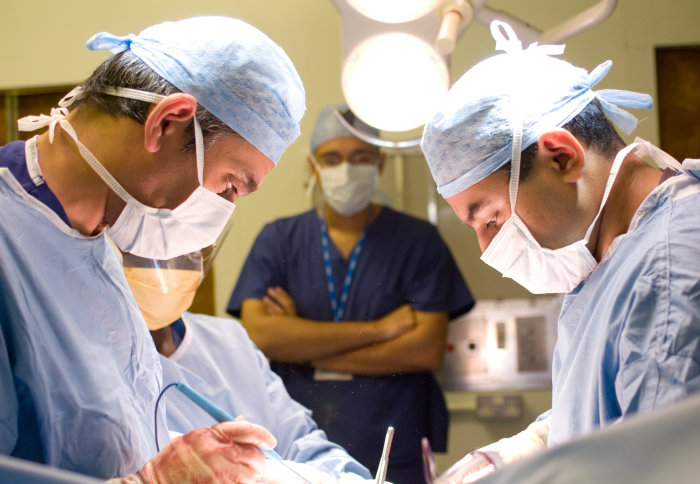How do surgeons’ brains respond to multitasking in the operating theatre?

New research shows that dysfunction of the prefrontal cortex disrupts surgical performance when multitasking in the operating theatre.
The latest research from the Department of Surgery and Cancer shows that attention and concentration centres in the brain appear to show maladaptive responses, which may lead to a deterioration in performance when multitasking in the operating theatre.
The Neuroergonomics and Perception Laboratory, based in the Hamlyn Centre at the St Mary’s Campus, is one of only a handful of laboratories in the world that have been using functional neuroimaging techniques to investigate brain behaviour in surgeons. Their work, which spans more than a decade, includes delineating the neural changes that accompany surgical skill acquisition, the impact of stress on surgeons’ brain function and, more recently, the use of non-invasive brain stimulation to improve surgical performance.
The team's latest work uses intelligent systems such as functional near-infrared spectroscopy to determine what happens in the surgeon's brain when they have to handle multiple simultaneous demands in the operating theatre. Surgical trainees were asked to perform a minimally invasive suturing task under time pressure whilst concurrently responding to case-irrelevant clinical decision-making scenarios. The results showed that when trainees try to multitask intraoperatively, activity in the prefrontal cortex, a brain region important for attention and concentration, diminishes and fascinatingly this attenuation in response was associated with a decline in technical performance.
Speaking about the study, Daniel R Leff, Senior Author and Clinical Lead for the Neuroergonomics Perception Laboratory, said: “This latest work builds on a body research we have been conducting to study surgeons’ brain function to improve performance and enhance patient safety. The link between low, inverted and “disordered” prefrontal processing and performance decline under multitasking stressors is fascinating and implies a role for intra-operative neuromonitoring towards real-time detection of signatures heralding impaired attention and concentration”.
There is enormous potential to use these latest findings to improve surgical training and performance which will inevitably be advantageous to patient safety. With greater emphasis being placed on fostering non-technical skills among surgeons and on the ‘human factors’ aspect of performance errors, assessment of brain behaviour can provide a refined evaluation of surgical trainees’ capability with specific focus on workload and attention. Deriving neurophysiological benchmarks, which provide objective evidence of a trainee’s ability to maintain attention and concentration under the stressful conditions of the operating theatre can supplement other traditional assessment tools upon which certification of surgeons is reliant.
The group’s latest paper was accepted as an oral podium presentation at the American Surgical Association (ASA) meeting in Washington DC. The ASA is the oldest and one of the most prestigious surgical associations in the world. Competition for presentation is extremely fierce with a very low acceptance rate. The paper has also been accepted for publication in the Annals of Surgery, one of the highest impact surgical journals.
The study's first author, Hemel N. Modi, said: “We are extremely honoured to have had our work accepted in ASA and Annals of Surgery and we look forward to building on our findings and exploring interventions that may help surgeons maintain focus during times of stress”.
Follow the study authors on Twitter:
Article text (excluding photos or graphics) © Imperial College London.
Photos and graphics subject to third party copyright used with permission or © Imperial College London.
Reporter
Benjie Coleman
Department of Surgery & Cancer